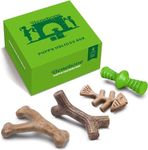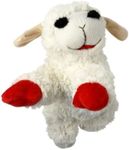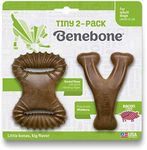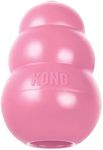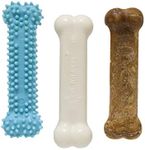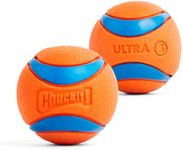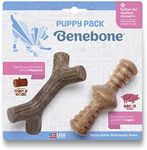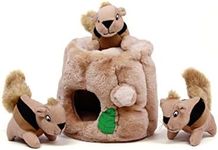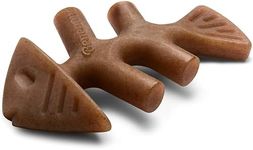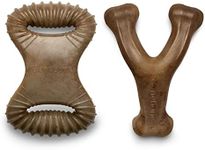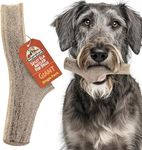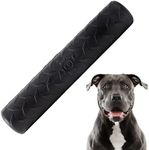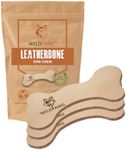Buying Guide for the Best Dog Toys For Puppies
Choosing the right toys for your puppy is essential for their development, mental stimulation, and overall happiness. Puppies are naturally curious and energetic, and the right toys can help them learn, grow, and stay entertained. When selecting toys, consider factors such as safety, durability, and the specific needs of your puppy. Here are some key specifications to consider when picking the best toys for your puppy.MaterialThe material of the toy is crucial because it affects the toy's durability and safety. Common materials include rubber, plush, and rope. Rubber toys are durable and great for teething puppies, plush toys are soft and comforting but may not last long with aggressive chewers, and rope toys are good for tugging and chewing. Choose a material that matches your puppy's chewing habits and play style.
SizeThe size of the toy should be appropriate for your puppy's size and breed. A toy that is too small can be a choking hazard, while a toy that is too large may be difficult for your puppy to play with. Small breeds need smaller toys that they can easily carry and chew, while larger breeds need bigger toys that can withstand their strength. Always ensure the toy is large enough that your puppy cannot swallow it.
DurabilityDurability is important because puppies can be very destructive with their toys. Look for toys that are designed to withstand heavy chewing and rough play. Durable toys are often made from tough rubber or reinforced fabric. If your puppy is a strong chewer, opt for toys labeled as 'indestructible' or 'heavy-duty.' For less aggressive chewers, standard durability toys may suffice.
SafetySafety is the most important factor when choosing a toy for your puppy. Ensure the toy is free from small parts that can be swallowed or choked on. Avoid toys with sharp edges or those made from toxic materials. Always supervise your puppy during playtime to ensure they are playing safely. Look for toys that meet safety standards and are labeled as non-toxic.
PurposeDifferent toys serve different purposes, such as teething, training, or comfort. Teething toys are designed to soothe sore gums and are usually made from soft rubber. Training toys, like fetch toys or puzzle toys, help with obedience and mental stimulation. Comfort toys, often plush, provide a sense of security. Choose toys based on what you want to achieve with your puppy's playtime.
InteractivityInteractive toys can keep your puppy engaged and mentally stimulated. These toys often involve some form of puzzle or treat-dispensing mechanism that challenges your puppy to think and problem-solve. Interactive toys are great for preventing boredom and can be particularly useful when you need to keep your puppy occupied for a while. Select interactive toys that are appropriate for your puppy's age and skill level.
TextureThe texture of a toy can provide different sensory experiences for your puppy. Some toys have ridges or nubs that can help clean teeth and massage gums, while others are smooth or have a plush surface. Puppies may prefer different textures at different stages of their development. Observe your puppy's preferences and choose toys with textures that they enjoy and that provide beneficial stimulation.
